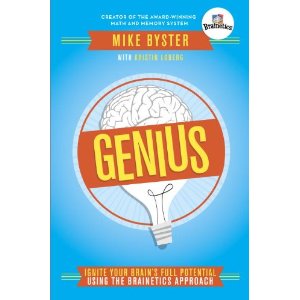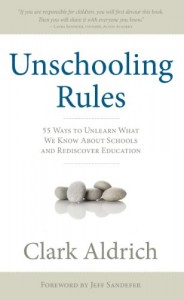The One Thing That Really Annoys Me
June 13th, 2012 // 2:54 pm @ Oliver DeMille
I think I’ve heard every side of the education debate over the past two decades, including different theories of education, the pros and cons of each new educational fad and curriculum, and the opinions of those who support the typical education system versus the many differing views from those who don’t.
I find most of this discussion healthy and intriguing—after all, all the passion shows that many people care deeply about the education of our children.
But there is one thing that really annoys me.
I read it again just this week.
An otherwise stellar writer and usually wise thought-leader said it, and though I’ve heard it before I still cringe whenever it comes up.
It’s the one thing you can’t really say about fixing education, because it is just plain wrong.
This frustrating argument goes something like this: American education needs serious reforming, there are a lot of good ideas on how to do this, but if the changes depend on parents it just isn’t going to work—the experts, in public and/or private schools, are the only ones who can lead this.
My response? This idea is totally false.
Moreover, it’s downright dangerous to a free nation. Those who promote this idea either don’t know what they are talking about or have some dark agenda.
The Bible says those who hurt our little ones should have a millstone put around their neck and be thrown in the ocean.
Okay, that’s not exactly what the Bible says. And clearly I’m putting too much angst into this. Many of the writers are probably good, well-intentioned people.
I need to calm down. Breathe. Live in the now. Zen.
But, as you can probably tell, this topic really gets my ire up.
I think one of the reasons it is so frustrating is that at first glance it sounds quite reasonable. Many people hear this and nod their heads reflexively.
That’s how much we’ve come to trust experts in modern times. “Give me an expert. Any expert…”
The truth is something quite different.
If parents don’t buy in, no educational reform is going to work, no matter how many experts, think tanks, studies, politicians and Presidents support the change.
More to the point, significant and lasting change will only occur when parents truly lead out.
Parents are the indispensable individuals in reforming education.
Certainly there are exceptions to this, examples of students with little parental support who succeed anyway, but the overall direction of education in society is led by a nation’s parents.
It’s time we admit this and approach education reform accordingly.
The future of our society doesn’t depend on Harvard, it depends on our dinner tables.
Current proposals to fix America’s education system are divided into roughly two categories: (1) those that recommend top-down reforms by experts, and (2) those that suggest changes by parents and students.
Both can help, of course.
With that said, there are very few of the second type, and these are given very little credence by the educational elite.
For example, Montessori, Charlotte Mason, homeschooling and other such bottom-up approaches are seen by the education bureaucracy as perhaps useful for a few children and families but not legitimate systems for widespread improvement of education.
This is the old mistake of aristocracies and meritocracies, where innovators become leaders and then their posterity, from their perch at the top of society, routinely discounts the validity of rising innovations.
An executive at 3M once told me that the company was founded by creative and innovative entrepreneurs, but that today none of them could even get an interview at 3M—their resumes just wouldn’t be enough to get through the door with the new-fangled HR guidelines.
Actually, some of the expert proposals for educational reform are quite good, even innovative.
But the attempt to apply them from the top-down, with expert educational theorists training school managers, is doomed from the start because parents are almost entirely left out of the formula.
The future of our educational system—and, by extension, nation—depends on the values of innovation, initiative, creativity, individualism and entrepreneurialism.
These are hardly the natural lessons of our school environments or curricula, nor are they the example set by most of our current cadre of teachers.
Indeed, with all due respect, emulating many of our modern educators or applying the universal lessons of our typical school environments and textbooks is as close to the opposite of innovation, creativity, initiative, individualism and entrepreneurialism as possible.
This irony is central to our education problem.
The system is widely institutionalized, bureaucratic, anti-innovation and conveyor-belt oriented.
Only innovators can really teach innovation, but innovation is by nature risky and therefore seldom a point of career advancement in our teaching system.
The opposite is true, of course, in the growing non-traditional education sector, which is the source of nearly all proposals of the second type.
Many parents face significant criticism when they choose alternative educational paths for their children, but it is exactly such courageous initiative which trains students to be innovative and creative.
On the one hand, prestige and credibility in education are headed in the direction of more of the same, even while the experts give lip-service to innovation but refuse to actually innovate in major ways.
On the other hand, one generation’s innovators are the next generation’s leaders.
Such non-traditional education may appear strange, or even arrogant and indulgent, today, but it is better to be risky than stagnant.
One cliché remains demonstrably true about history: Change happens, and those who try to achieve progress by refusing to innovate are always disappointed.
Homeschooling is profound precisely because it is led by parents. Indeed, the people who make this choice are, by definition, innovative, creative and courageous—or will become so if they stick to it. The same holds true of many other non-traditional educational choices.
The truth is, many professional educators already know this.
For example, I grew up in the home of two teachers.
My father taught fourth grade at the local public elementary school, and later taught third grade and served as a vice-principal before he retired.
His entire career was spent in public schools.
My mother’s career was similar. She taught high-school English and spent a few years teaching English at the local community college before returning to teach high school.
Both of them repeated the following mantra so many times that I grew up assuming everyone knew it: Most of the students who excel in public school are those whose parents are deeply involved with their education.
Homeschooling, Montessori, unschooling, and other non-traditional educational models may not be for everyone in our complex modern nations, but one fact remains a verifiable law of educational reform: Any reform that doesn’t engage and involve the nation’s parents will fail.
Write it in stone.
Parents are the indispensable individuals in society’s educational success.
If you want to influence the future of education, get the parents to lead it.
***********************************
 Oliver DeMille is the co-founder of the Center for Social Leadership, and a co-creator of Thomas Jefferson Education.
Oliver DeMille is the co-founder of the Center for Social Leadership, and a co-creator of Thomas Jefferson Education.
He is the co-author of New York Times, Wall Street Journal and USA Today bestseller LeaderShift, and author of A Thomas Jefferson Education: Teaching a Generation of Leaders for the 21st Century, and The Coming Aristocracy: Education & the Future of Freedom.
Oliver is dedicated to promoting freedom through leadership education. He and his wife Rachel are raising their eight children in Cedar City, Utah.
Category : Blog &Culture &Education &Entrepreneurship &Family &Featured &Leadership &Liberty
TJEd and the “French Way”
May 14th, 2012 // 7:46 am @ Oliver DeMille
A book review of Druckerman’s Bringing up Bébé
 Many people around the world are discovering principles of great education that those using TJEd are already applying. The “conveyor belt” approach to learning has two big competitors in this second decade of the twenty-first century.
Many people around the world are discovering principles of great education that those using TJEd are already applying. The “conveyor belt” approach to learning has two big competitors in this second decade of the twenty-first century.
I Can Conform Better Than You Can
The first can be summed up as, “Don’t just participate in the conveyor belt — excel at it!” This is the idea widely popularized in the Tiger Mom book[i] and debate that swept through American education circles during the past two years.
The second approach, the one adopted by Montessori, TJEd and other highly-effective educational viewpoints, recently gained another proponent. In the enjoyable book Bringing Up Bébé by Pamela Druckerman, we learn about core principles the author observed in the parenting philosophy and style of French parents. Those familiar with TJEd will hear a familiar ring to these “French” techniques, and all of us can learn from these ideas.
 Les Sept Clés
Les Sept Clés
For example, according to Druckerman, here are some of the “secrets” of effective parenting widely utilized in the French culture:
- A focus on parenting as a pleasure rather than a chore or grind
- An emphasis on helping children experience growing up as a joy rather than a job
- Taking it slow and enjoying the journey rather than rushing to stay ahead of the neighbors’ kids or meet standards set by unnamed experts
- “Establishing firm but gentle authority…”
- “Favoring creative play over lots of lessons…”
- “Never letting a child become the center of your existence”[ii]
- Realizing that children aren’t “projects for their parents to perfect. They are separate and capable, with their own tastes…”[iii]
“French parents just don’t seem so anxious for their kids to get head starts,” Druckerman tells us, but rather help them experience quality in growing up and learning.[iv] The focus is more on the current goal of being happy children and the end goal of becoming well-adjusted adults than on striving for adult goals as toddlers and young children.
Throughout the book, those using TJEd will find familiar themes couched in an evocative European experience. The following ideas show up repeatedly and in new and interesting ways:
- Classics
- Mentors
- Structure time, not content
- You, not them
- Simple, not complex
- Quality, not conformity
- Secure, not stressed
- Teach to the appropriate phase, not one-size-fits-all education
- Personalize, instead of joining the conveyor belt
Above all, Druckerman highlights the French emphasis on wisdom[iv] (rather than grades, gold stars, or other external accolades) as the central purpose of learning — and for that matter, of family and life.
The fact that Druckerman is an American who learned these principles while living in France adds to the flavor—it is practical in the “American” sort of way while being idealistic and even artistic in the French way. In short, it’s a great read, even if you don’t use TJEd but especially if you do!
[ii] See “Books: Bringing up Bébé by Pamela Druckerman,” Reviewed by Kim Hubbard, People, February 20,2012.
[iii] Pamela Druckerman, Bringing up Bébé.
[iv] Ibid.
Category : Blog &Book Reviews &Education &Family &Featured
A Truly Excellent Book on Genius and How to Develop It!
April 3rd, 2012 // 9:41 pm @ Oliver DeMille
Genius by Mike Byster
5 Stars
Reviewed by Oliver DeMille
I love it when a plan comes together. Okay, it isn’t really a plan. But I still love it when I read a book that says what we’ve been saying for years in Leadership Education.
I enjoy disagreeing with books too, which is why I love to talk about Lord of the Flies or 1984 with people who have read them repeatedly and given them a lot of thought.
But today I read a book that agreed with much of what I wrote about in A Thomas Jefferson Education and that I’ve been speaking and writing about for a long time.
I had the same experience when I read The Talent Code by Daniel Coyle, Unschooling Rules by Clark Aldrich, The Global Achievement Gap by Tony Wagner, and A Whole New Mind by Daniel Pink.
Today’s book was Genius by Mike Byster.
Those who have followed Leadership Education and Thomas Jefferson Education (TJEd) know that we have long taught that all people on the planet have genius within them, and that it is a fundamental purpose of good education to help them find and develop their genius.
Byster goes a step further, by teaching the reader how to develop one’s areas of inner genius, and the result is a truly excellent book.
Those familiar with Leadership Education will resonate with several recurring themes.
For example, Byster argues that a major problem with modern education is that we put too much emphasis on teaching subjects rather than helping students learn how to effectively learn and think.
He quotes Albert Einstein and Alvin Toffler, respectively: “I never teach my pupils; I only attempt to provide the conditions in which they can learn,” and “The illiterate of the 21st Century will not be those who cannot read and write, but those who cannot learn, unlearn, and relearn.”
Most significantly, at least for me, Byster outlines a plan or pattern of teaching and learning genius.
Again, many of the themes are familiar to me, but they are couched in new ways and combined with new concepts, examples and ideas that make the book an instant classic for me. I’ll read it again and again.
Byster teaches the following “Six Skills of A Genius,” and gives suggestions and exercises for mastering them:
- Focus
- Concentration
- “Retaining Massive Amounts of Information Without ‘Memorizing’” (This is accomplished by making learning fun, exciting and otherwise engaging one’s own love of learning and areas of passionate interest.)
- Thinking Outside the Box
- Organization (This includes finding patterns in things and reorganizing information to better intersect with one’s own mind and world.)
- Forgetting
What a great outline. I especially like the last one, which reminds me of counsel I often gave to freshmen and sophomores: “Only take notes on things you deeply care about and want to remember, rather than just summarizing whatever lecture you attend.”
Not trying to remember things you don’t want to recall is a vital part of remembering the important things.
Again, this book resonated with me in so many ways that I was excited to go back and read it again.
The first time I just read it through, then I spent the evening and long into the night reading it a second time and taking copious notes.
Maybe the most enjoyable thing about this book is that many of the exercises are focused on math.
I hope that doesn’t stop anybody from reading it, because it was some of the most enjoyable and downright fun math I’ve done since…well, ever.
This was a very entertaining, pleasurable, amusing book. I learned so much! I recommend it everyone, whether you know anything about TJEd or not.
For those with a background in Leadership Education, I think you’ll love this book as much as I did. Principles of truth are principles of truth, after all, and this book is full of such principles.
I add it to A Beginner’s Guide to Constructing the Universe by Michael Schneider as one of my all-time favorite books on math, and also as one of the best books on “Leadership Education.”
Read it, love it, have fun with it. Enjoy!
***********************************
 Oliver DeMille is the co-founder of the Center for Social Leadership, and a co-creator of Thomas Jefferson Education.
Oliver DeMille is the co-founder of the Center for Social Leadership, and a co-creator of Thomas Jefferson Education.
He is the co-author of New York Times, Wall Street Journal and USA Today bestseller LeaderShift, and author of A Thomas Jefferson Education: Teaching a Generation of Leaders for the 21st Century, and The Coming Aristocracy: Education & the Future of Freedom.
Oliver is dedicated to promoting freedom through leadership education. He and his wife Rachel are raising their eight children in Cedar City, Utah.
Category : Blog &Book Reviews &Education &Featured &Leadership &Mission
Education Insights: Unschooling Rules (A Book Review)
December 14th, 2011 // 8:27 am @ Oliver DeMille
 Once in a while a truly great book comes along that you just can’t wait to tell everyone else to read. Unschooling Rules by Clark Aldrich is that kind of book.
Once in a while a truly great book comes along that you just can’t wait to tell everyone else to read. Unschooling Rules by Clark Aldrich is that kind of book.
I started reading in the afternoon and couldn’t put it down until I finished.
My first thought when I completed the last page was, “I wish I had written this!” My second thought was, “I need to read this again.”
Those who have read and studied A Thomas Jefferson Education (TJEd) or Leadership Education will find this book especially enjoyable. It covers a lot of TJEd themes, but with its own interesting twist.
As I read it I kept saying, “Yes! Absolutely! Right on!” I haven’t seen a book so totally capture the vision of Leadership Education in home school in a long time.
But I’ll let this outstanding book speak for itself. Here are some quotes from this fabulous little book:
“In many schools across the world, children en masse get dropped off and enter buildings where they become the recipient of linear ‘teaching’ and tests. They go home, do homework, and start over again the next day—all for the goal of preparing them for the next level of school and meeting broad and dubiously constructed standards.”
A better “…type of learning answers such questions as: ‘What do I love doing?’ ‘What is my dream?’ ‘What gives me energy?’ ‘What are my unique strengths?’ and even ‘What is my role in a group?’”
“There are two reasons to learn something: either because you need it or because you love it.”
“Twenty-five critical skills are seldom taught, tested or graded….adapting, analyzing and managing risks…being a leader…gathering evidence, identifying and using boards of mentors and advisors…managing projects, negotiating, planning long term…”
“Don’t worry about preparing students for jobs from an Agatha Christie novel…”
“One computer + one spreadsheet software program = math curricula.”
“Five subjects a day? Really?”
“Maturing solves a lot of problems.”
“Grouping students by the same age is just a bad idea.”
“Tests don’t work. Get over it. Move on.”
“The future is portfolios, not transcripts.”
“Outdoors beats indoors.”
“The predominant academic milieu should be walking. When walking, children can talk. They can think.”
“Under-schedule to take advantage of the richness of life.”
“But it will not be the governments, or their school systems, or other of their institutions that will drive real innovation in reconstructing childhood education. It will be as it already is, the homeschoolers and the unschoolers.”
These are just a sample of the many wise things in Unschooling Rules. As I said, this book fits right in with the TJEd model of leadership education and home school. I highly recommend it book for every parent, teacher and administrator involved in modern education. It is a manual for great learning.
My friend Jeff Sandefer wrote in the forward to this excellent book:
“Each child has a spark of genius waiting to be discovered, ignited, and fed. And the goal of schools shouldn’t be to manufacture ‘productive citizens’ to fill some corporate cubicle; it should be to inspire each child to find a ‘calling’ that will change the world. The jobs for the future are no longer Manager, Director, or Analyst, but Entrepreneur, Creator, and even Revolutionary.”
This is a great book for our time — whether you home school or not. Five stars! I hope you’ll read it right away. If you are new to TJEd, read this great book right along with A Thomas Jefferson Education.
If you’re already familiar with TJEd, Unschooling Rules provides another excellent witness of what really works for truly quality education. This book belongs on every shelf, and its ideas need to be in every mind!
***********************************
 Oliver DeMille is the co-founder of the Center for Social Leadership, and a co-creator of Thomas Jefferson Education.
Oliver DeMille is the co-founder of the Center for Social Leadership, and a co-creator of Thomas Jefferson Education.
He is the co-author of New York Times, Wall Street Journal and USA Today bestseller LeaderShift, and author of A Thomas Jefferson Education: Teaching a Generation of Leaders for the 21st Century, and The Coming Aristocracy: Education & the Future of Freedom.
Oliver is dedicated to promoting freedom through leadership education. He and his wife Rachel are raising their eight children in Cedar City, Utah.
Category : Blog &Book Reviews &Education &Family &Leadership
The Big Debate on American Education
November 4th, 2011 // 4:39 pm @ Oliver DeMille
Home Schools, the New Private Schools, and Other Non-Traditional Learning
The current national commentary on American education is split by a major paradox.
On the one hand, nearly all the experts are convinced that our schools must find a way to effectively and consistently teach the values and skills of innovation and initiative.
If we fail in this, everyone seems to agree, the competitiveness of U.S. workers and the economy will continue to fall behind other nations.
As Gary Shapiro wrote:
“Our nation is looking into the abyss. With a blinding focus on the present, our government is neglecting a future that demands thoughtful action.
“The only valid government action is that which invests in our children. This requires hard choices…
“America is in crisis. What is required is a commitment to innovation and growth. We can and must succeed.
“With popular and political resolve, we can reverse America’s decline…. America must become the world’s innovative engine once again; we cannot fail.”
And education is the key.
On the other hand, many of the top education decision-makers seem committed to only making changes when there is a consensus among educators, parents, experts and administrators.
They adamantly criticize any who take bold, innovative initiate to improve the situation.
In the meantime, they wait timidly, albeit loudly, for a consensus which never comes.
Because of this view, the innovative success of many parents in home schools, teachers in small private schools and other non-traditional educational offerings go unnoticed or undervalued by the national press.
The reality is, as Orrin Woodward put it: “If everyone agrees with what you’re doing, it isn’t innovative.”
The growing Global Achievement Gap in our schools, as outlined by Tony Wagner’s book of this title, presents an ominous warning for Americans.
We can change things if we choose, Wagner says, by adopting the following values and skills in our school curriculum: critical thinking, agility, adaptability, initiative, curiosity, imagination and entrepreneurialism, among others.
Secretary of Education Arne Duncan quoted Wagner in Foreign Affairs:
“…there is a happy ‘convergence between the skills most needed in the global knowledge economy and those most needed to keep our economy safe and vibrant.’”
He also foreshadowed the decades ahead by quoting President Obama:
“The nation that out-educates us today is going to out-compete us tomorrow.”
It is difficult to imagine our public schools meeting these lofty needs if our teachers are expected to be anything but entrepreneurial, innovative and agile, when they in fact work in an environment that discourages and at times punishes precisely such behaviors.
It is even more impossible to make the needed changes to our education system if we must wait for everyone to agree on a consensus of action.
Change always comes with a few courageous souls taking the lead, showing what can work, and helping others follow their innovative path.
The only way we’re going to see a burst of innovation and initiative in American education is to start paying attention to the myriad exciting educational innovations already occurring.
As Malcolm Gladwell suggests, the leadership right now in many arenas—including education—is occurring outside the mainstream, led by “Outliers” who just forget the experts and create new and better ways of doing things.
If you are one of these educational innovators—at home or in the classroom—keep taking the lead. You are the future of American success!
Category : Education &Family &Featured &Leadership &Liberty &Mission











